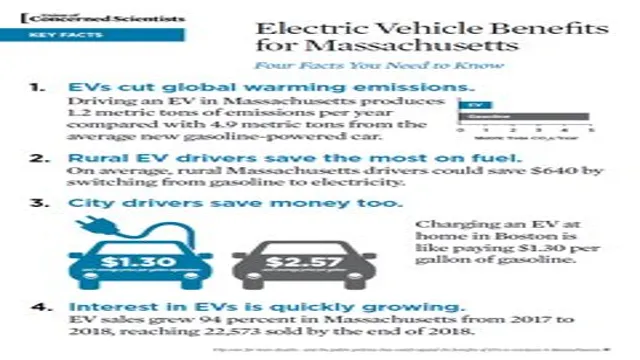Electric Company Cars in the UK – Unlocking Tax Benefits and Savings
Electric cars have become increasingly popular over the years, and it’s not hard to see why. Aside from being environmentally friendly, electric cars also provide numerous benefits, especially in terms of cost savings. One of these benefits is the Electric Car Benefit in Kind, which has been gaining attention in the UK.
But what exactly is this benefit and how can it affect your taxes as a company car driver? In this blog post, we’ll explore the details of the Electric Car Benefit in Kind in the UK, and how it can be a game-changer for both drivers and employers alike.
What is Benefit in Kind?
If you’re considering buying an electric car in the UK, it’s important to understand what benefit in kind (BIK) means. Benefit in kind is a tax paid on perks that employees receive in addition to their salary, such as a company car. Electric cars, however, receive a significant BIK tax discount due to their lower emissions.
In fact, from April 2020, electric cars have a 0% BIK tax rate for the year, which increases to 1% in 2021 and 2% in 202 This means that electric cars are a great option for those wanting to reduce their carbon footprint and save on taxes at the same time. So, if you’re on the fence about buying an electric car, keep in mind the potential tax benefits that come with it.
Explaining the Concept of Benefit in Kind
Benefit in Kind is a term used to describe non-cash payments or perks provided to an employee by their employer in addition to their regular salary or wages. Examples of Benefit in Kind include company cars, health insurance, gym memberships, and even free meals. These perks are a way for employers to attract and retain talented employees, but they can also have tax implications for both the employee and the employer.
The value of Benefit in Kind is often subject to taxation, which means that employees may have to pay additional taxes on the value of the benefit they receive, and employers may have to pay additional National Insurance contributions. It’s important for both employers and employees to understand the potential tax implications of Benefit in Kind in order to avoid any unexpected costs or penalties.

Electric Car Benefit in Kind Rates
If you’re in the market for a new company car, choosing an electric car may save you money in the long run. The UK government encourages eco-friendly options by offering favorable benefit in kind rates for electric cars. Benefit in kind rules dictate that if your employer provides you with a company car which you also use for personal travel, you have to pay tax on a portion of the value of that benefit.
For electric cars, the taxable value is currently set at 1% of the list price, whereas traditional petrol and diesel cars start at 22%. This means that an electric car with a list price of £30,000 would incur just £300 in company car tax, compared to a diesel or petrol car with the same list price which would incur £6,600 in tax. Going electric can result in significant tax savings and lower running costs as electric cars are often cheaper to maintain and have lower fuel costs.
Comparing Rates of Electric and Non-Electric Cars
As we move towards an eco-friendly future, more and more people are considering switching to electric cars. One advantage of electric cars is that they are exempt from certain taxes and rates, including Benefit in Kind (BIK) rates. BIK rates apply to employees who receive a company car for their personal use, where the car is also available for business use.
Electric cars have a much lower BIK rate than non-electric cars due to their lower carbon emissions. The BIK rates for electric cars are currently as low as 1% in the UK, compared to non-electric cars which can have rates of up to 37%. These lower rates make it much more cost-effective for employees to use electric cars as their company vehicle, providing a significant incentive for companies to switch to more eco-friendly vehicles.
Impact of List Price and Battery Range on Benefit in Kind Rates
When it comes to electric cars, the two biggest factors affecting Benefit in Kind (BIK) rates are the list price and battery range. The higher the list price, the higher the BIK rate. This means that employees who choose an electric car with a higher list price will have a higher tax liability.
On the other hand, a longer battery range will mean a lower BIK rate because the car will generate fewer emissions. This is because the BIK rate is linked to the CO2 emissions of an electric car. So, the further you can go on a single charge, the less CO2 emissions you will generate, and the lower your BIK rate will be.
Therefore, if you’re looking to switch to an electric car, it’s worth considering the list price and battery range in your decision-making process to ensure you maximize the benefits of lower BIK rates.
Tax Savings of Electric Cars as Benefit in Kind
Are you considering an electric car as your next company car? Not only will you be making a positive impact on the environment, but you could also benefit from significant tax savings. As of April 2021, electric car benefit in kind tax rates in the UK are zero. That means you won’t have to pay any tax on the value of the electric car you use for personal journeys.
The standard rate of benefit in kind tax for company cars is typically calculated based on the car’s value, CO2 emissions, and fuel type. However, electric cars are exempt from this calculation, providing a significant tax break for drivers. Additionally, electric company cars are exempt from paying the London congestion charge, saving you even more money.
Overall, if you’re looking for a cost-effective and environmentally friendly alternative to traditional petrol or diesel company cars, an electric car could be the perfect solution, providing significant tax savings as an added benefit.
Calculating Tax Savings for Employers and Employees
Electric cars are one of the most significant revolutions in the transportation industry, and they also come with some tax benefits for both employees and employers. In the UK, electric cars offer considerable tax savings as a benefit in kind. The benefits are determined by the car’s CO2 emissions rate, and as electric cars do not release any CO2, they are considered the most environmentally friendly and, therefore, offer the most significant tax savings.
Employers who offer electric cars as a benefit to their employees enjoy tax savings, primarily because they fall under the zero-emission category, which attracts a lower tax rate. This means that the company’s pay-as-you-earn (PAYE) and national insurance contributions are reduced. Furthermore, employers can also claim back up to 100% of the cost of installing charging points on work premises, enhancing accessibility to charging infrastructure for employees.
Similarly, employees who receive electric cars as a benefit in kind are not liable to pay company car tax, making it an appealing option. This tax breaks result in savings, translating to more disposable income in the employee’s pocket. Additionally, by driving an electric car, they reduce their fuel costs, boosting their tax savings even further.
In conclusion, businesses and employees stand to benefit from tax savings when they embrace electric cars as a benefit in kind. They are an environmentally friendly option that holds multiple benefits for both parties. Whilst the tax savings may be a significant factor to be considered, embracing electric cars also improves air quality, reduces greenhouse gas emissions, and enhances employees’ well-being.
Ultimately, electric cars are a win-win.
Examples of Tax Savings for Different Models and Annual Mileage
Electric cars have become increasingly popular due to their environmental benefits, and the potential tax savings for companies and individuals alike. As a company car driver, choosing an electric car can result in significant cost savings with regards to Benefit in Kind tax. For example, if you choose an electric car with a list price of £30,000 and an annual mileage of 10,000 miles, you will pay just £255 in BIK tax per year.
This is significantly lower than the BIK tax for petrol or diesel cars with the same list price and mileage, which can reach up to £2,100 per year. Furthermore, companies can benefit from a 100% first-year allowance on electric cars, which means that they can deduct the full cost of the vehicle from their taxable profit in the year of purchase. With these significant tax savings, it’s easy to see why electric cars are becoming an increasingly popular option for both companies and individuals, as they not only support a cleaner environment but also reduce overall tax liabilities.
Other Benefits of Choosing Electric Cars
When it comes to electric cars, the benefits are numerous and go beyond just being environmentally friendly. If you’re in the UK, one of the major advantages is the reduced benefit in kind tax that you’ll pay. Compared to traditional petrol or diesel cars, electric cars have a much lower tax band when it comes to calculating the benefit in kind tax, which is essentially the tax paid on the perks you receive from your employer, like company cars.
This means that if you choose an electric car, you’ll be paying less tax, which can translate to significant savings over the years. Additionally, electric vehicles often come with government incentives like grants and reduced road tax, which can also help you save money. And, as electric car technology continues to develop, the range is increasing and the charging infrastructure is expanding, making it easier than ever to own and operate an electric vehicle.
Environmentally Friendly and Cost-Effective Driving
While the cost savings and eco-friendliness of electric cars are already well known, there are several other benefits to choosing an electric vehicle. One such benefit is their quiet and smooth driving experience, unlike the loud and jarring traditional gasoline engines. This not only makes for a more pleasant ride, but it also reduces noise pollution in residential areas and makes it easier to hear important sounds like sirens or horns while driving.
Electric cars also have fewer moving parts and require less maintenance than traditional vehicles, resulting in lower costs for repairs and replacements. Plus, with the latest advances in technology, electric cars can provide longer driving ranges and faster charging times, making them more practical for everyday use. Overall, choosing an electric car is not just a matter of saving money and preserving the environment – it’s about enjoying a more comfortable, hassle-free driving experience that benefits both you and your surroundings.
Potential Future Changes in Benefit in Kind Policy for Electric Cars
While there may be potential future changes in benefit in kind policy for electric cars, there are already several benefits to choosing an electric vehicle. Firstly, you can save money in the long run as electric cars are generally cheaper to run than petrol or diesel cars. They also benefit from lower road tax rates, can use bus lanes in some cities, and can be exempt from congestion charges.
Additionally, electric cars produce lower levels of harmful emissions, making them not only better for the environment but also better for your health. With the advancement of technology, electric cars are becoming more affordable and have a longer driving range, making them a practical option for many people. Furthermore, owning an electric car can give you a sense of pride and satisfaction that you are doing your part for the environment.
So, even if benefit in kind policy changes in the future, the benefits of choosing an electric car are already apparent.
Conclusion
In conclusion, it’s clear that electric cars are the way forward when it comes to reducing our carbon footprint and benefiting the environment. But it’s not just the planet that benefits – electric cars are becoming increasingly attractive to businesses and employees thanks to their many tax savings. With the rise of Benefit in Kind tax incentives in the UK, it’s safe to say that electric cars are no longer just an eco-conscious choice, but a smart financial one too.
So do your part for the planet and your wallet – switch to an electric car today!”
FAQs
What is benefit in kind for electric cars in the UK?
Benefit in kind for electric cars in the UK is a tax paid by the employer for the personal use of an electric company car. However, electric cars have a lower benefit in kind rate compared to petrol and diesel cars.
How is the benefit in kind rate for electric cars calculated in the UK?
The benefit in kind rate for electric cars in the UK is calculated based on the car’s list price and CO2 emissions, with a rate of 1% for 2021/22 and 2% for 2022/23.
Are there any exemptions for electric cars from the benefit in kind tax in the UK?
Yes, electric cars with CO2 emissions of 0g/km are exempt from paying the benefit in kind tax in the UK.
What is the benefit of choosing an electric car for benefit in kind tax in the UK?
Choosing an electric car for benefit in kind tax in the UK provides an opportunity to save on tax payments as they qualify for lower benefit in kind rates compared to petrol and diesel cars. Additionally, electric cars have lower running costs and are environmentally friendly.



